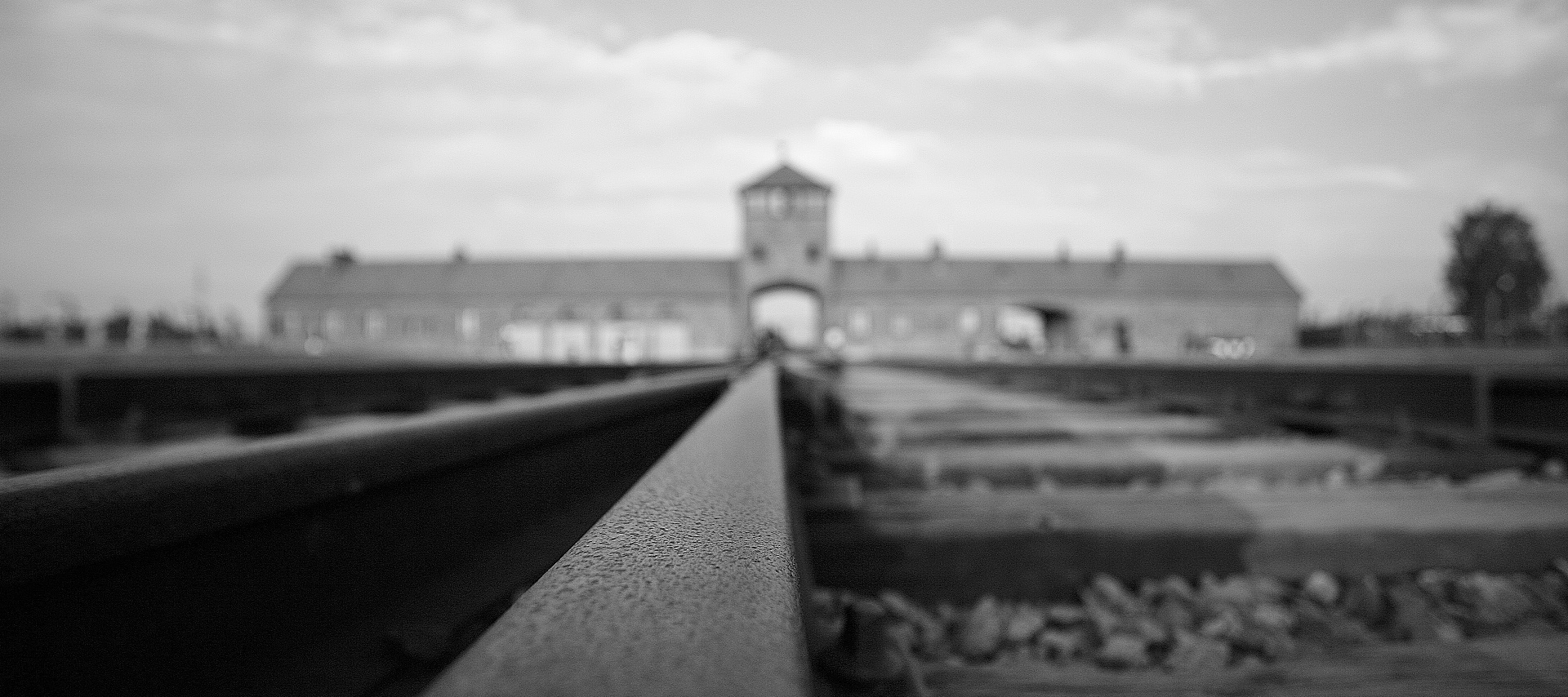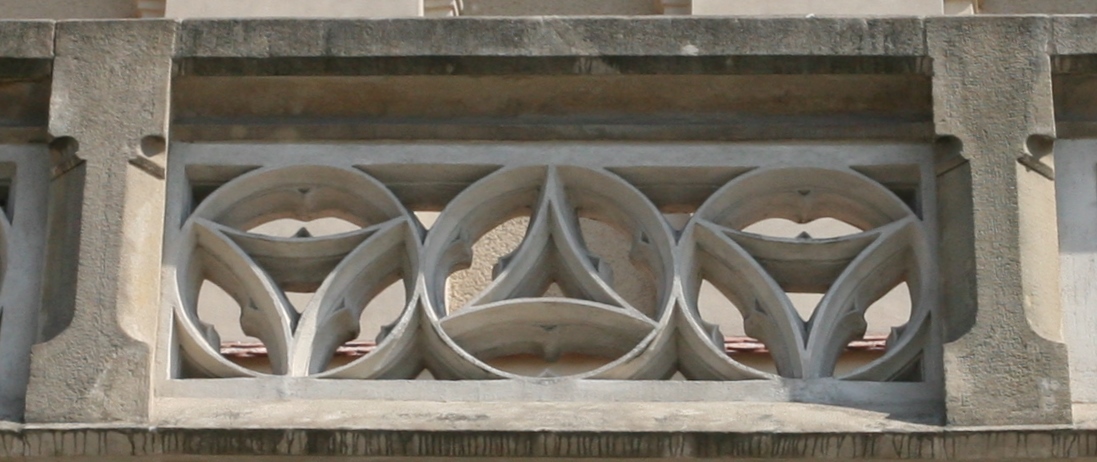Chapter Fifteen: Wróbel
[Author's note: At the time of posting this update, I have 52 pre-orders and only 47 days left to fund. I'm very unlikely, therefore, to be funded via Inkshares. That said, of everything I've written in Oculus, this is probably to me the most moving, so I wanted to get it out there, even if it meant skipping past a few vital chapters which introduce the characters in this chapter and their relationship.
I always knew that Ariadna and Katarína would visit the Kraków and the place nearby which I describe here. I wrote this chapter initially from imagination in February. I knew that to finish Oculus, I had to actually visit these places myself. Doing so deepened my writing. I felt the emotions they felt. I changed little, for instance, there was a reference to moss on the tracks which I removed, as there is no moss there. The details I added were mainly due to some amazing (to me) coincidences between what I had written and the reality I saw before me. The photo I describe is real. Ariadna's surname had already been selected and here I was confronted by someone who could be her relative. Likewise the scene with the horse-drawn carriage, that actually happened while I was at that cafe, chosen among all the cafes in that square because it was where I felt my characters would actually have sat. Even the detail in the stone balustrades was a coincidence - this looks very similar to the second of three dingbats I use as chapter seperators - the third is my profile image.
There were many other ways that my trip to Poland affected Oculus. Kraków is a beautiful, welcoming place and I encourage anyone who has the chance to visit to go.]

Ariadna Kwiatkowska
Near Kraków, 6 July 2009
The horror of it all that had been building up inside us was overflowing and now it overwhelmed me, my thighs and knees went weak and gave way, and I collapsed, kneeling on the ground. I was vaguely aware that the sharp edges of the stones and the splintered wood were cutting into my knees and calves. I did not care. I was kneeling in a river of blood. This was not a scar, it was a gaping wound. Swallowing up the world, with over a million voices, wailing.
I had been the one to insist that we come here. We are Poles and this atrocity had been committed on our lands. We’d both lost ancestors… We never knew them of course, but our grandparents had, so how could we visit Kraków and not come here? We had to, out of respect. Mr Woodford had understood, he accepted how important it was to us, but with the sorrow of someone who knew something of the pain we would be exposing ourselves to.
Katarína was feeling it too and she put her arms around me as we crouched between the railway tracks. Could we not have acknowledged it, and let it go, without actually coming here, as she had suggested? No… We had to feel this, we were meant to. How could we have let this happen? What was there in the human soul that could allow such a dark hatred to live, to cause such monstrous suffering? It was still happening. Not here. Not Nazis. But in so many places. And she knew I was right, and had supported me and held my hand so tight as we walked through. Everyone sad, solemn, but not wanting to allow themselves to really feel it. Put some distance between themselves and this place and time, even though it was here and now. Pretend that they are not a part of it. Even worse, treat it as some vaguely interesting curiosity, a crossed off item in the list of things to see. Is this detachment, indifference, really any better than the people of our own generation pretending that it never happened? This was done to our brothers and sisters. It was done to us. It was done by us.
In a corridor filled with photos of Poles who had been here in the early days of the camp, I had insisted on looking at every single picture, taken when they had first arrived. Recorded underneath each one was a name, an occupation, a date of birth. The date they came and the date they died. Katarína didn’t want me to look. Maybe she was right, because I found him and it broke me. Edward Kwiatkowski. Number 12017. Born on the 25th of July, 1911. Hairdresser. Maybe they made him shave the heads of the others. Deported 5 April 1941. Died 18 December 1942. His face was gaunt but he still showed a strength in his eyes, he was not emaciated yet, he was standing straight, he knew death was coming but for now he was still human, with hope. The inverted black triangle signified that he was ‘socially undesirable’, perhaps a political agitator against the Nazi occupiers, or a pacifist who had refused to fight for them. All I knew was that he was my great uncle. My grandfather’s older brother that nobody had ever talked about.
In the basement I could feel their despair, their tortures, their death – experimented on, they were early victims of the gas as ever more efficient methods of killing were tried out on the Polish prisoners. Then we went through the munitions store of this originally Polish army barracks, converted to be used as the first chamber and crematoria before the larger second camp industrialised the process. Seeing the gallows where the first camp commandant had been sent to hang after Nuremberg brought me no sense of justice or closure.
This is not the past, it is the present, the future.
I could not listen to the guide any more. It was too much. So here we knelt, at the end of the tour, in the second camp, on the tracks that had brought so many thousands of people here to die. I could feel every single one of them.
Mr Woodford lay one hand on my shoulder, and, I glimpsed through my tears, the other hand on Katarína’s. Katarína and I, we looked up at each other, and then to a sparrow which had landed on the steel rail to my left, where we were kneeling, facing the gates of hell. It briefly examined the three of us, and then flew away.
===
Katarína Wisocka
Hostel 70s, Kraków
We could not sleep that night, we could not talk. On the way out of the camp, we had passed many of the remaining brick built huts, but could not enter, it was too much. The sun was setting as we passed the empty place where the children’s hut had been – where Mengele had kept his test subjects. The whole green space between huts had erupted into meadows of wild flowers. I wanted to celebrate this with Ariadna, the fact that even after such a wound had been inflicted on Her, the Universe could heal… but she wasn’t ready to listen, and I wasn’t ready to say. But in our bed that night, she held me tight, and I held her.
===

Ariadna Kwiatkowska
Loving Café, Rynek Główny, Kraków
7 July 2009
We sat there, silently stirring our coffees, while Mr Woodford wandered off to use the bathroom. Katarína reached out and held my hands, and motioned with her eyes across the square, towards the foot of Wieża Ratuszowa. A partially dismantled stage, used for a concert the night before, had been commandeered as a playground by some children. They were running around laughing. A few of them had found that the sheet metal floor was a bit loose in one section, and were happily jumping up and down, the clattering echoing around the square. They didn’t know the pain yet. In their world, everything was fresh, undiscovered, and fun. We smiled at each other. Was their world really a different one to ours? But then I started to shudder at the thought of what they would find as they grew older, how they would change. One of them might grow up to be a rapist. Another might die of leukaemia. Four years ago today, fifty-two people were killed in London by terrorist bombs. Would these children suffer the same fate? Wouldn’t it be better that they never lived? Sensing that I was slipping back into melancholia, she squeezed tighter, and she smiled at me, and then wiped away my tears with her fingers. I did the same for her.
“Ariadna, you must know, that there are countless other universes, where that horror… didn’t happen.”
“By the same argument, there must be countless universes where it did.”
“So? We must take comfort, that somewhere, sometime, we are sitting here, waiting for Mr Woodford to come back, and it is a happy summer morning here in our home country, and it never happened in that better world. Can’t you feel it? That better place, it’s just within reach of our hearts. It’s in theirs” – again, she glanced towards the children – “right now.”
She was right. A huge warmth was pouring into me. I could stop it if I thought about it. I decided not to. I could see it in her too, filling us. Even this Universe, that had suffered this horror, could be healed. This heat would protect us, nurture us. She placed her hand on my abdomen. We could hear the children screaming for joy across the square. Kraków is a beautiful place. It is the soul of Poland. Hope, beauty, pride, resilience, and a joyful inventiveness. Tinged with melancholia. We had known great sadness… but we knew that we had to heal. We could build something new, here. We’d never forget, but we’d be stronger. We would give something back to this world. We would heal Her.
We both felt at home here. We were with an inspiring and gentle man in a beautiful city, about to see the last writings of one of the greatest thinkers of all time. And we were together, Katarína and I, here and now, always and forever. If there was anywhere in Poland that Katarína and I could be free, it was here.
One of the many ornate horse carriages that parade the square’s edge passed by. Two beautiful ladies at the reigns. They were working together, yes, but perhaps… They captivated Katarína too. She realised what she was doing and reverted her attention back to me, a little guiltily. I didn’t mind. It was passion, and we need passion. I was just smiling at the name plate on the side of the carriage, Number Seven. It proclaimed that it was owned by Krzysztof Kwiatkowski. Two little flowers together.
I looked past the carriage to the Sukiennice, the market hall which dominates the centre of the square. I became lost in the design of the stone balconies on this left half of the west façade – circles, each with a perfect triangle inside, except that the edges of the triangles were curved inwards, and there were tiny little triangles pointing out from the centres of the edges, with opposing ones pointing in from the circle edge. For a while I was mesmerised by them.
“Ariadna?”
“One day, Katarína.” I said, filled with a new calmness, and certainty, looking down at her hand still resting on my tummy. “When you’ve earned us a bit of money in a top lab or something. We’ll come back here. You’ll see.”